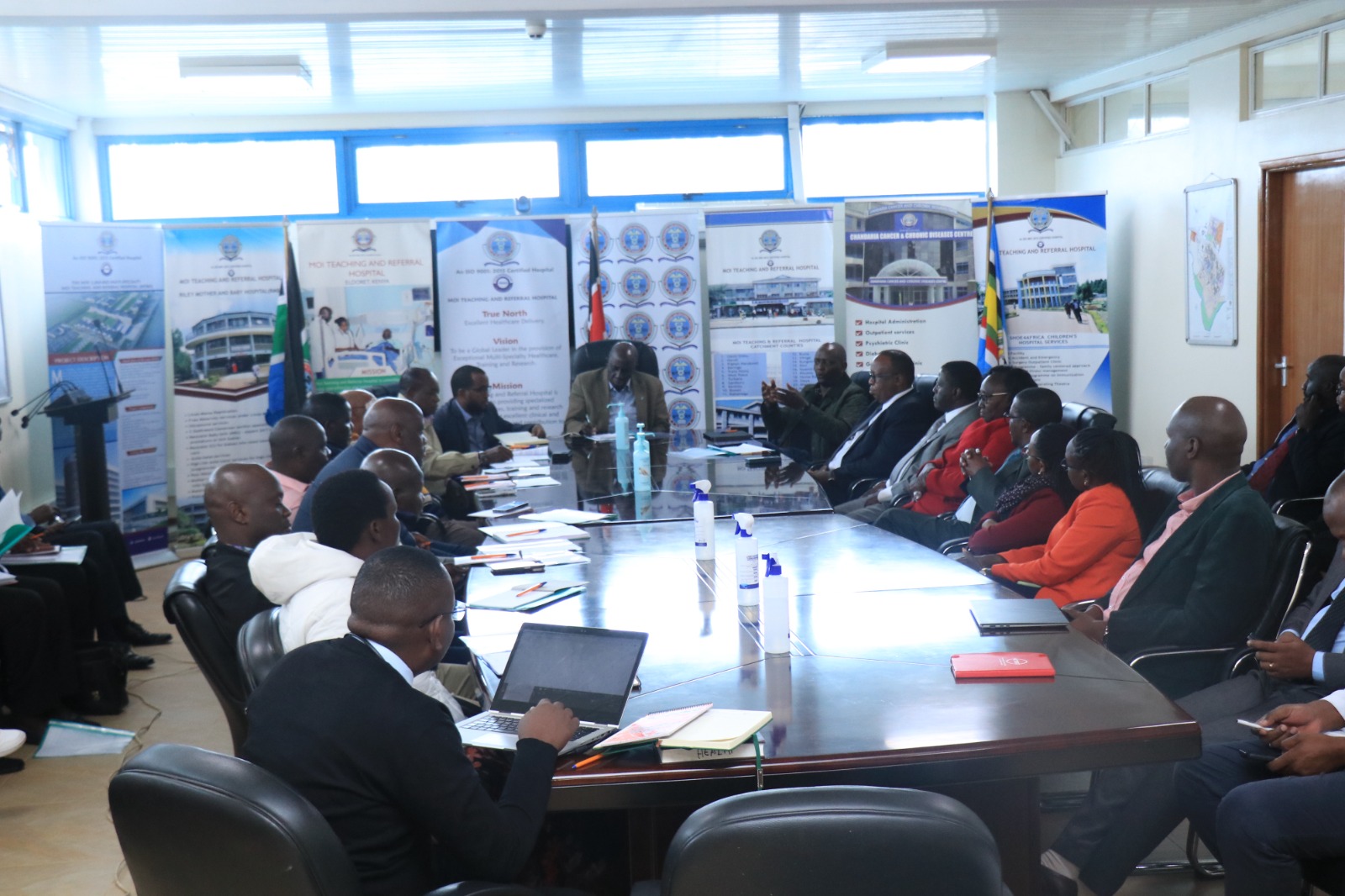

The National Assembly’s Departmental Committee on Health has widened its inquiry into alleged malpractice and ethical breaches in Kenya’s kidney transplant sector.
On Monday, the MPs were told that Somali nationals have been travelling to Kenya in high numbers seeking kidney-related treatment that includes the possibility of transplant.
This was revealed when the officials of St. Luke Orthopaedic and Trauma Centre and Oak Tree Centre for Kidney and Chronic Diseases appeared before the Health Committee on Monday.
They acknowledged that kidney transplantation in Kenya continues to face significant challenges, including inadequate infrastructure, limited laboratory capacity, and regulatory gaps, which have contributed to suspicion and unethical practices.
Dr. Matthew Kiptonui Koech, a nephrologist at Oak Tree Centre for Kidney and Chronic Diseases, told MPs that many Somali patients on dialysis in Mogadishu travel to Kenya in search of treatment.
“What we have noticed, because we have taken care of a few Somali patients ourselves, is that many of them are stuck on dialysis in Mogadishu. When they hear they can get transplants in Kenya, they make their way here,” Dr. Koech explained.
He revealed that most arrive without referral letters from Somalia’s Ministry of Health, carrying only notes from doctors back home or seeking referrals from Kenyan practitioners upon arrival. Others, he said, simply walk into hospitals in Eldoret or Nairobi after hearing about transplant services.
Diana Chepngetich, chief nursing officer and transplant coordinator at the facility, said Somali nationals often come with relatives who volunteer as donors.
“We have tried to be fair and humane, but the law is silent on whether foreigners need clearance from their ministries of health. That legal gap exposes both doctors and patients,” she noted.
Lawmakers raised concerns about how such patients accessed treatment, with Ndhiwa MP Martin Owino demanding clarification on whether protocols requiring Ministry of Health clearance for foreign patients were being followed.
Questions were also raised over reports that some Somali nationals may have improperly accessed National Health Insurance Fund (NHIF) benefits.
The hearings further exposed systemic weaknesses, with Dr. Koech highlighting the lack of reliable tissue typing services locally—a critical step in matching donors and recipients, forcing facilities to send samples abroad, often to India.
Although Kenyatta National Hospital (KNH) has started conducting the tests, logistical hurdles, especially in safe sample transport, limit its reliability.
“KNH has the capacity, but they lack a proper courier system to guarantee the timely and secure transport of blood samples,” Dr. Koech said, noting that private laboratories such as Metropolis and Lancet are more dependable due to their established international courier networks.
Lawmakers, led by Endebess MP Dr. Robert Pukose and Seme MP Dr. James Nyikal, pressed experts on allegations of illegal kidney harvesting in Eldoret and reports that organs were being stored for later use.
Medics dismissed the claims as unfounded, saying Kenya lacks the technical capacity to harvest and preserve kidneys outside strict clinical procedures.
“There is no way you can remove a kidney from someone today and store it for use later. Globally, you cannot preserve a kidney for more than 24 hours,” Dr. Koech testified.
Experts also called for Kenya to transition to deceased donor transplantation to meet the rising demand. However, they admitted that the country lacks the systems, coordination, and laboratory speed required to harvest and transplant organs within the critical six-hour window.
MPs were told that countries such as Spain and the UK run national databases that pre-type patients and donors, enabling quick matches when deceased donors become available.
In contrast, Kenya relies almost entirely on living family donors—a model experts warned was unsustainable and could push desperate patients toward unethical or underground options.
The inquiry also revealed tensions among transplant facilities, with some accusing competitors of abandoning services due to financial losses, while others continue to operate under scrutiny.
Dr. Nyikal, who chairs the committee, emphasised the urgency of reform.
“We are dealing with human lives and serious ethical questions. We must close the legal gaps that allow confusion, exploitation, or malpractice to thrive,” he said.
Parliament is currently considering the Tissue and Transplant Bill, which seeks to establish stronger laws to govern organ donation and transplantation.
The committee has directed medical practitioners to submit a technical memorandum outlining the infrastructure, legal reforms, and timelines needed to build a regulated deceased donor program.
The hearings will continue as MPs engage hospitals, patients, and regulators before tabling recommendations on how to strengthen Kenya’s fragile transplant sector.
The probe comes amid mounting concerns over weak regulatory oversight, claims of unethical practices, and a rising influx of foreign patients, particularly from Somalia, seeking transplants in the country.
Lawmakers say the investigation aims to establish whether existing gaps in policy and enforcement have created loopholes that expose both patients and health practitioners to exploitation, while also undermining confidence in Kenya’s healthcare system.
The inquiry was prompted by allegations of malpractice at the Mediheal Group of Hospitals, where it has emerged that the rising reports of Somali nationals seeking transplants in Kenya without formal clearance from their government.
















